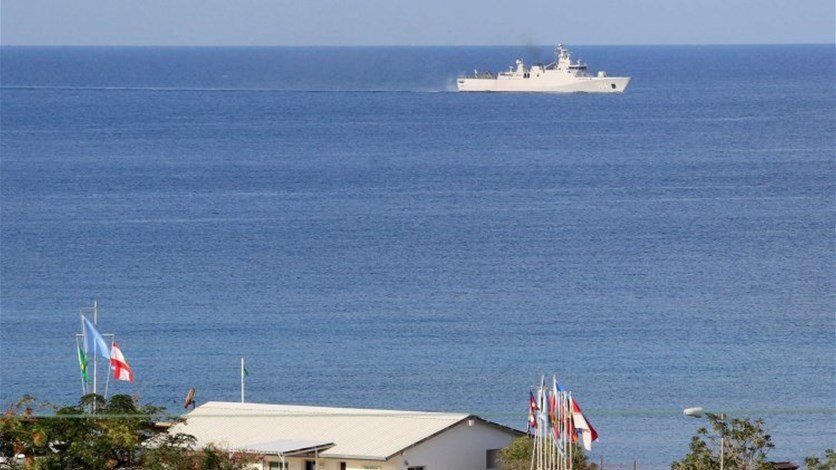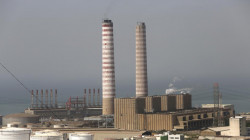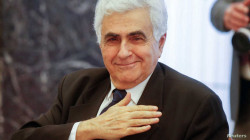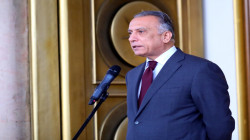Lebanon says final US proposal for maritime deal with Israel set to be weighed

Shafaq News/ A final proposal on a maritime deal between Israel and Lebanon will be sent to Beirut in the coming hours, Lebanon’s president said Sunday after speaking by phone with the US envoy mediating the high-stakes talks.
The announcement from Lebanese President Michel Aoun’s office came days after an apparent done deal that would set a maritime border between the rivals and divvy up two disputed offshore gas fields appeared to fall apart at the last moment, spiking tensions on Israel’s northern border.
In the phone call, US mediator Amos Hochstein told Aoun that his talks with both sides had concluded, indicating that a final proposal demarcating the maritime border would be sent to Beirut for approval.
Aoun’s statement, carried by Lebanon’s National News Agency, said the Lebanese side would study the proposal carefully before announcing its response.
It was not immediately clear if the proposal had already been approved by the Israeli side. The US State Department did not respond to a request for comment, and it was not possible to reach Israeli diplomatic officials due to the start of the Sukkot holiday.
Before speaking to Hochstein by phone, Aoun was briefed on talks by Lebanese official Elias Bou Saab, who had held extensive talks with the US energy envoy over the past few days, according to NNA.
The report said Hochstein thanked the Lebanese president and his team for their cooperation throughout and the way in which certain issues were handled.
A deal would put to bed a long-running dispute over some 860 square kilometers (330 square miles) of the Mediterranean Sea, covering the Karish and the Qana gas fields.
Despite officially being at war with Israel, Lebanon is keen to conclude a deal and begin extracting gas in hopes of pulling itself out of an economic tailspin, with even terrorist leader Hassan Nasrallah appearing to back negotiations.
Both sides seemed headed for a deal earlier this month, but the draft agreement has since faltered. Israel has blamed Lebanese negotiators for insisting on certain changes, which were rejected by Jerusalem.
The collapse of the deal had caused tensions to rise, with Israeli officials reportedly warning that Nasrallah’s Iran-backed Hezbollah terror group could attempt an attack on northern Israel or on a rig from UK-based Energean in the Karish field that is set to begin extracting gas under an Israeli lease.
Israeli troops have been placed on high alert along the northern border starting Thursday.
On Saturday, Israel’s security establishment gave Energean a green light to start testing the gas rig’s pipeline, with full operations slated to begin within weeks. Israel has insisted it will not wait for a deal, but has only allowed Energean to take preliminary steps thus far.
The Hezbollah-linked Al-Akhbar newspaper reported Friday that a Lebanese official had told Hochstein that “Lebanon does not intend to retract” the changes it had sought on the maritime deal, despite reported pressure from the Biden administration to drop some of its demands.
The unnamed Lebanese official added that “it’s on the US to fulfill its promises and manage the issue with Israel.”
Although the deal’s exact points of contention remain unconfirmed, Al-Akhbar reported Tuesday that Beirut did not agree to recognize Israel’s buoy-marked boundary — which Jerusalem unilaterally placed five kilometers off the coast of the northern town of Rosh Hanikra in 2000 — as an international border.
The report also claimed Beirut was against the idea of demarcating a land border as part of the agreement and maintained that the issue must instead be reserved for discussions with the United Nations.
Israel and Lebanon never agreed to demarcate a border on land, keeping to a UN-enforced ceasefire line instead, and thus leaving their offshore exclusive economic zone disputed. The lack of a maritime border had not been a major issue until a decade ago, when a gas bonanza began to be discovered in the eastern Mediterranean, potentially reshaping the region’s economic future.
Following years of stagnation, Israel and Lebanon entered US-brokered talks in 2020 aimed at resolving the dispute.





